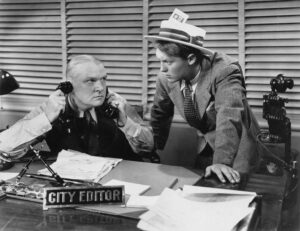How can you get a reporter’s attention?
When it comes to PR, many people don’t realize how difficult it can be to get the attention of reporters. They get hundreds of emails a day, and of that only a small number get read, and of that, an even smaller number become news stories. So, how can you get them to read your emails?
It’s not a science but if you want to improve your chances of a reporter or editor opening your email and ideally, responding to you, here are some suggestions:
Do Your Homework
Are you really sure that the email you are sending to a particular reporter fits his or her beat? One of the biggest pet peeves that journalists have is when people send them pitches and emails that have nothing to do with the news stories they cover.
In addition, newsrooms have undergone a lot of staffing cuts and re-arrangements in the past few years. Chances are that whomever was a business reporter last year, may have a different role this year. That is, if they are still working at the news outlet. To be sure, go to the news outlet’s website and click on the staff directory to make sure that the reporter is still there and that they are working the beat that is related to the story idea that you want to pitch them. You can also check their LinkedIn profile, but the outlet’s website will likely be the most accurate.
Make Them Curious
Imagine these two subject lines came up in your in box. Would you pay attention and want to learn more?
5 Tips for getting your car ready for winter
Top International Cities for Bedbug Infestations
Try to grab their attention by being catchy and informative. You want to arouse curiosity so that they will scroll or click to learn more. Clickbait is famous for piquing curiosity so that people will click, hence the name. Asking a question or using words, such as unusual, surprising and secret will increase the likelihood that the reporter will click on your email and read what it says. After all, if there is an unusual and surprising secret out there, most people, including reporters, want to learn more about it.
Use Bullet Points
Why should you use bullet points in your email to reporters?
- They are quick to read.
- They summarize information in an easy-to-read format.
Using bullet points does not mean you are “dumbing” down your content. Reporters have so many demands on their time, anything that enables them to get information quickly and easily helps them choose which emails to turn into news stories.
Incorporate Trends and Seasons
Whatever is going on in the nation or whatever time of year it is, you can utilize that information to get the attention of the media. Did a famous person die and it was discovered that he or she didn’t have a will? If you are a lawyer, you can reach out to the media about the importance of having an estate plan before you become incapacitated. Or you can be a contrarian. For example, if you are a chef, you can pitch a story about what to eat at Thanksgiving if you don’t like turkey.
Use Data
Journalists love numbers! If you can provide some statistical data to back up your pitch, that will help your chances of them taking notice and acting on the information.
Package a Story for Them
If you can make it easier for them to write about your pitch, that can make a big difference. If you are pitching a behavioral therapist for thought leadership after a national news story breaks about new statistics concerning the toxicity of vaping, offer the behavioral specialist, a medical professional, and someone who has quit smoking/vaping, or has been unable to quit, and who would be willing to be interviewed. Offering a packaged story is a huge plus and saves a journalist a lot of work pulling the story together.
Pay attention to the news
Set up alerts for your industry and type of business. Stay on top of current trends. There is always something going on that you can provide information about to the media. Doing that will establish you as a subject matter expert, and over time, reporters may actually start coming to you for information.
When it comes to getting the media’s attention, the key is to be timely, creative and offer information of value.

